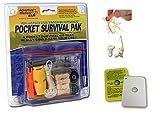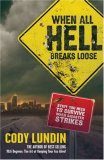Watch out — there’s panic about NEW YORK (Reuters) – In the coming months, mental health experts expect a rise in theft, depression, drug use, anxiety and even violence as consumers confront a harsh new reality and must live within diminished means.
But there will also be benefits from the new austerity – not least an end to “careless consumerism.”
For some however, there will be a painful period of readjustment: A paralegal, recently laid off, wanted to get back at the “establishment” that he felt was to blame for his lost job. So when he craved an expensive new tie, he went out and stole one.
The story, relayed by psychiatrist Timothy Fong at the UCLA Neuropsychiatric Institute and Hospital, is an example of the rash behaviors exhibited by more Americans as a recession undermines a lifestyle built on spending.
“People start seeing their economic situation change, and it stimulates a sort of survival panic,” said Gaetano Vaccaro, deputy clinical director of Moonview Sanctuary, which treats patients for emotional and behavioral disorders.
“When we are in a survival panic, we are prone to really extreme behaviors.” Books like are selling well.

Survival Kit The U.S. recession that took hold in December last year has threatened personal finances in many ways as home prices fall, investments sour, retirement funds shrink, access to credit diminishes and jobs evaporate.
It is also a rude awakening for a generation of shoppers who grew up on easy access to credit and have never had to limit purchases to simply what they needed or could afford.
Instead, buying and consuming have become part of the national culture, with many people using what is in their shopping bags to express their own identity, from the latest gadgets to designer handbags.
For those who need to abruptly curtail spending, that leaves a major void, said James Gottfurcht, clinical psychologist and president of “Psychology of Money Consultants,” which coaches clients on money issues.
“People that have been … identifying with and defining themselves by their material objects and expenditures are losing a definite piece of their identity and themselves,” he said. “They have to learn how to replace that.”
Resisting temptation now could be even more difficult, as struggling retailers roll out massive discounts to lure shoppers during the holiday season. 
Fueled by easy access to credit, a housing market boom and rising investments, U.S. household spending accelerated in much of the past decade while the savings rate declined.
After the attacks of September 11, 2001 killed thousands and shuttered U.S. financial markets, consumers were encouraged by politicians and business leaders to spend as a way of saving the economy and proving capitalism could not be crushed.
“We’re getting these messages that it is, in effect, patriotic to spend money,” said Stuart Vyse, a psychology professor and author of “Going Broke: Why Americans Can’t Hold On To Their Money.”
The United States is deeply dependent on such spending, with consumption generating two-thirds of economic activity. But problems arise when consumers become dependent on buying goods and services to cope with their emotions, Vaccaro said.
“We have difficulty handling our internal emotional state in other ways when we can’t do that,” he said, prompting some to seek out immediate gratification through drugs or alcohol.
MOURNING A WAY OF LIFE
Besides an increase in shoplifting, psychologists said retailers need to be prepared for more instances of violent behavior like that seen at a Wal-Mart store in Long Island, New York the day after Thanksgiving.
“I wouldn’t be surprised if we see an uptick in crime, related to stealing,” said UCLA’s Fong. “I wouldn’t be surprised if we see more workplace violence and more violence at the malls.”
A throng of shoppers seeking rock bottom prices on flat-screen TVs and computers surged into the Wal-Mart store in predawn hours, trampling and killing a worker in the process.
Fong said many shoppers have never stopped to think about why they were buying items, and it was easy to ignore looking deeper during a boom that support such spending.
But now, patients that can no longer shop to relieve stress have become anxious or depressed, he said.
Others fume: “‘I used to be able to afford that, I should be able to afford that now, I deserve that stuff,'” he said.
But Vaccaro said the downturn could be a time for shoppers to pause and study what they are attempting to achieve or what void they are attempting to fill by spending.
“We don’t buy products, we buy feelings,” Vaccaro said. “We’re buying the anticipation of the feeling that we think that product or service is going to give us.”
Gottfurcht said he encourages clients to take a walk or do some deep breathing before making a purchase to avoid an impulsive buy. He also recommended that clients keep a journal, noting how they felt when bought an item.
He said clients should then check the list a week later to see if the “glow” of that purchase has worn off, and it only satisfied an immediate want, not a true need.
The greater opportunity of the downturn, Vaccaro said, is that it represents a chance to move away from “irrational” and “careless” consumerism toward “a more discerning consumer.”
2 Responses
Our nation is blessed with an aboundance of natual resourses. I live in the western united states (utah) and we have coal for several hundred years. I am proud that I can live as economically or as extravagantly as I choose. The greatness of America is that I can choose how to live my life. I have big american-made cars and will never drive some cheep little car. I enjoy the air-conditioner during the summer and lights when I hit the switch. I am building an off-grid home, that I am looking forward to retirering to. I plan on having solar, and a big gas powered generator to have the comforts I desire. Its my choice..I resent the radical green movement that wants to tell me how I “must ” live.
Once the Western world has forsaken the “American Dream” sales propaganda as its standard of achievement, and the day they come back down from the “Magic Enchantment” Disney-like world sold to them by the advertisers, and the propagandized “Ideal Lifestyle” from the commercial architecture magazines are recognized for the sales pitches they are, and separated from realties of every day North American life, and with both their feet firmly planted in the concrete of sound judgment, North Americans will build Zero Operating cost, Zero Maintenance, Environmentally friendly, practical, survival shelter accented realistically sized homes, complete with LED powered green houses, aquaculture spaces, composting rooms, gardens, water conservation features, Solar orientation, super-insulation to cut heating/cooling costs, Wind Power generators in good locations, Solar collectors, ground heat storage considerations, and payable mortgages – no “Amana Corp” power sucking fancies, self-cleaning ovens, double oven stoves, resistance element coils, automatic dish washers, counter top energy sucking toys, no ice maker doors on inefficient induction motor driven fridges, New, Einstein cycle solar powered refrigeration, Fewer massive cabinet displays, Less Glorious Lighting Displays, more LED lighting used in practical ways, No vaulted ceilings, fewer Magical staircases, no 2 1/2 inch deep synthetic white rugs, no triple bathroomed floors, and more microwave/convection cookers, wastewater/graywater recouping, dry Swedish toilets, composters built in, room for Solar panels, rechargeable batteries, charging stations, more triple glazed solar oriented practical heat gaining windows, more straw bale style insulation values, and mostly survivability in the hard times, and for retirement on very low incomes, built right into the home-investment. Look for newfangled, high efficiency wind generators, battery utility vehicles, battery rechargeable lawn mowers with no built in planned obsolescence, We may even see homes without the 18th century British styled royalty imitating lawns, and food gardens in their place! Everyone, having learned from the great republican depression, we have now only sampled the outer edges of, will develop a taste for practical realities far stronger than the pull of the propaganda and traditions of a day gone by, and adapt to off-grid, independent lifestyles, or parish in deep debt in a vain effort to maintain the non-sustainable lifestyle that has passed, certainly Detroit City, and soon the rest of America by! The end of the “Cheap Oil Era” is next upon us, and we have no wood to burn, just a bit of coal, for which we have no stoves! Solar, Wind, Wave, Hydro, Tidal, and Geothermal are not our “Last resorts” they are our ‘only’ resorts! Nuclear fission, once started, is only one human error from Armageddon, and creates wastes that can kill off all mankind in a few greedy generations! Until the Chinese scholars figure that one out, we must go with the sustainable, renewable, or “Perpetual” if you like, clean powers of nature to survive less glorious, but safer and happy lives. Check your bank account, Yankee Doodle, can you afford otherwise?